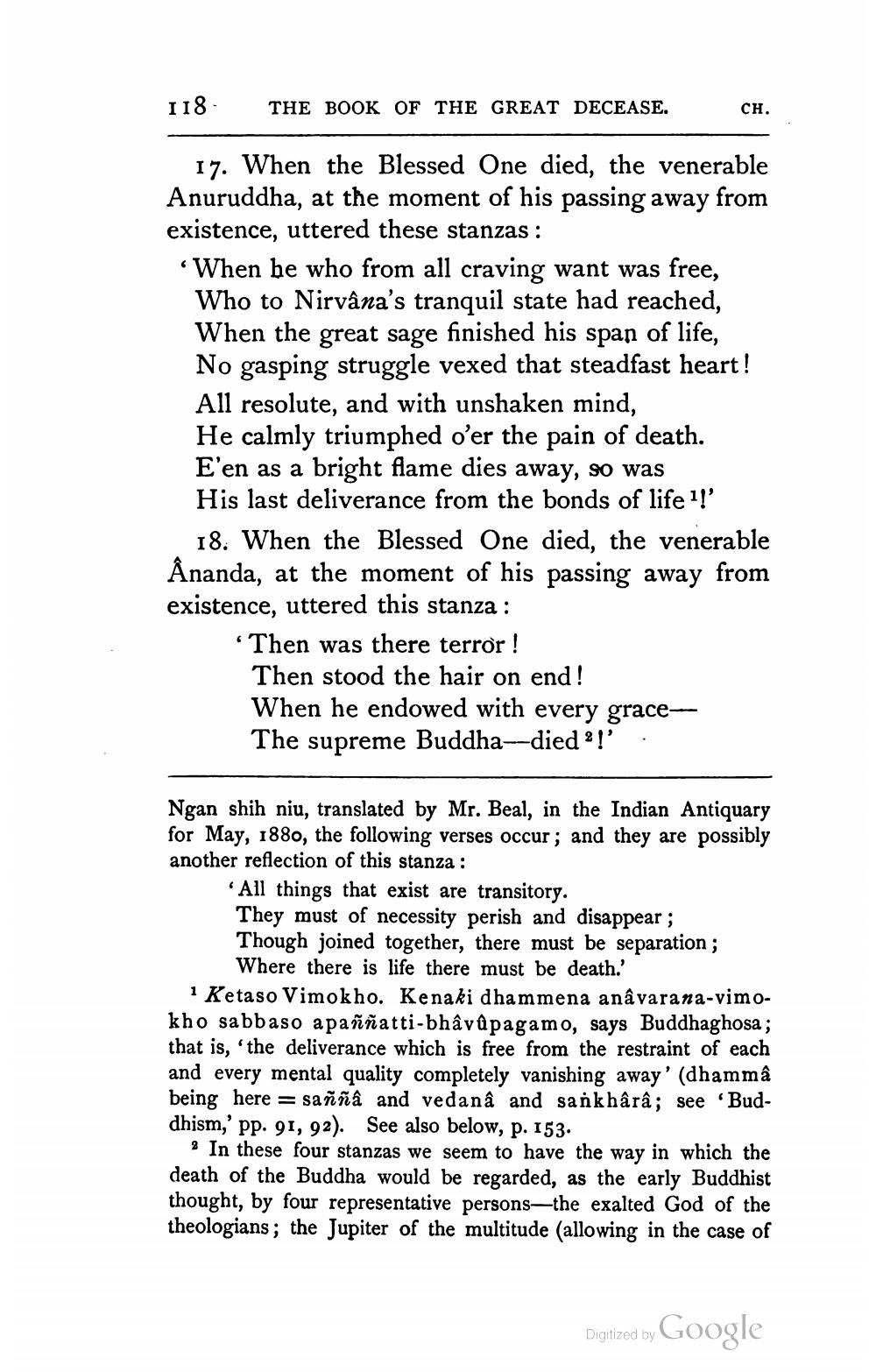________________
118
THE BOOK OF THE GREAT DECEASE.
ch.
17. When the Blessed One died, the venerable Anuruddha, at the moment of his passing away from existence, uttered these stanzas : • When he who from all craving want was free, Who to Nirvâna's tranquil state had reached, When the great sage finished his span of life, No gasping struggle vexed that steadfast heart! All resolute, and with unshaken mind, He calmly triumphed o'er the pain of death. E'en as a bright flame dies away, so was His last deliverance from the bonds of life 1!'
18. When the Blessed One died, the venerable Ånanda, at the moment of his passing away from existence, uttered this stanza :
•Then was there terror !
Then stood the hair on end ! When he endowed with every graceThe supreme Buddha--died ?!'.
Ngan shih niu, translated by Mr. Beal, in the Indian Antiquary for May, 1880, the following verses occur; and they are possibly another reflection of this stanza :
All things that exist are transitory. They must of necessity perish and disappear ; Though joined together, there must be separation;
Where there is life there must be death. 1 Ketaso Vimokho. Kenaki dhammena anavarana-vimokho sabbaso apaññatti-bhâvûpagamo, says Buddhaghosa; that is, the deliverance which is free from the restraint of each and every mental quality completely vanishing away' (dhammâ being here = saññâ and vedanâ and sankhârâ; see 'Buddhism,' pp. 91, 92). See also below, p. 153.
3 In these four stanzas we seem to have the way in which the death of the Buddha would be regarded, as the early Buddhist thought, by four representative persons—the exalted God of the theologians; the Jupiter of the multitude (allowing in the case of
Digitized by
Digitized by Google




